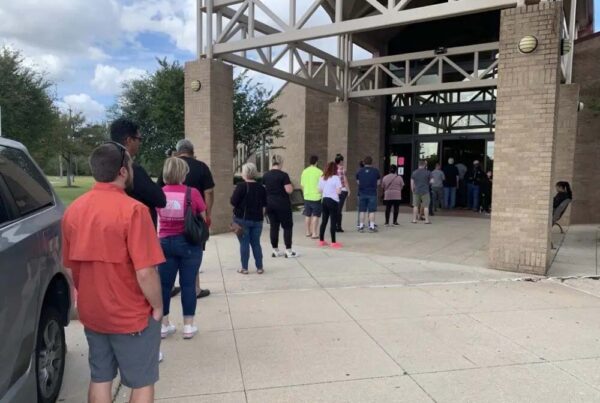From the American Homefront Project:
For New York Representative Nick LaLota, his U.S. Navy service is a central part of his reelection campaign. It’s how he introduced himself in a recent campaign ad. On his lawn signs, the “o” in his name contains the silhouette of a saluting officer.
The Republican congressman is running for reelection in New York’s first congressional district on eastern Long Island, the seat he’s held since last year.
He said veterans can make great public servants, because the military teaches self-sacrifice and trains troops to put their personal agendas aside to accomplish larger goals.
“That certainly was my training, that you put your ship and your shipmate before yourself,” LaLota said. “And the more time one has in that culture —that selfless culture, that pride-in-country culture, I think the more successful that individual can be in serving government whether it’s an appointed role or an elected role.”
In the eras of World War II and Vietnam, military service was a common resume line for candidates. In 1973, about 75% of Congress had served. But as the military evolved into an all-volunteer force, that number has dwindled to one-third.
A number of programs that nurture veterans with political aspirations are trying to change that.
“Folks that are in the U.S. military are some of the most highly trained, capable people in the world,” said Steven Lux with Syracuse University’s Veterans Program for Politics and Civic Engagement. “The amount of money that we invest — appropriately, I would argue — in our military, you just don’t want it to go to waste in a way. So if they have the passion and inclination, then let’s just give them a little bit more training so they can participate in public life.”
Over the course of several weeks, the Syracuse program teaches veterans about how campaigns work, how to fundraise, and how to define themselves for voters. They also learn ways to translate their military service into public service.
“The idea is to take the mystery out of what it takes to run for office,” Lux said.
Some veterans are naturally suited to elected office because they can be resilient team players as well as leaders, Lux said. They can offer unique perspectives on issues like public safety, national security and veterans benefits.
But often, they come to the program very green politically.
“Step number one, actually, is figuring out what party you’re in,” Lux said. “A lot of the military folks walk in the door and they say, ‘Well, I’m really more of a moderate. I’d like to be an independent.’ It’s a very, very hard thing to do to run as an independent.”
The Syracuse University program has graduated about 250 candidates since it started about five years ago.
Nick LaLota said his Navy service is a signal to voters about his priorities.
“I do rely upon my service to tell voters, especially those who don’t know me, who I am and what I’m about — not only in a rearview mirror looking way… but more importantly, a forward looking view on how they can predict what I would do.”
LaLota’s Democratic challenger is former CNN anchor, John Avlon, whose campaign didn’t respond to a request for comment. But Avlon has said that no matter LaLota’s history, he’s too extreme to stay in office.
The Military Times has counted 188 veterans now running for Congress.
This story was produced by the American Homefront Project, a public media collaboration that reports on American military life and veterans.












